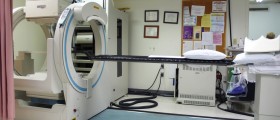
Pap smear
This procedure is very important because, if done on a regular basis, it can diagnose very early stages of cervix cancer and possibly save a woman’s life. Certain changes in the cells of the cervix can indicate that a woman may develop cancer in the future so she and her doctors can take appropriate steps to prevent it.
Who should have a Pap smear?
Most relevant medical organizations and authorities, especially those who focus on women’s health, recommend having regular Pap smears. However, not all experts agree on the age they should first start and how often should they be performed. Generally, Pap smears are recommended for women of age 21 and above. If the test shows no anomalies, it can be done every two or three years. After the age of 30 a woman may have these tests less frequently, especially if there were multiple negative tests in a row.
In some cases, it is recommended to have more than a usual number of Pap spears. Those cases include immune disorders, HIV, exposure to DESD before birth and previous tests that showed pre-cancerous changes in cells.
How is it done?
A Pap test or smear is done at the gynecologist’s as a part of the regular pelvic exam. The patient is supposed to lie down in the gynecological chair, with legs slightly lifted and knees bent. The doctor will use an instrument called speculum to hold the vagina open so he or she can have a clear view of the cervix. Then the doctor will take a sample from the cervix using a soft brush or an instrument called spatula. This does not hurt but it may cause some tingling or mild discomfort. The doctor then sends the sample for analysis.
Results
Usually, the doctor will describe the results as negative or positive. A negative result means that the cells collected from the cervix are normal and that the woman is healthy.
A positive result means that there are some abnormalities regarding the cells, and this does not necessarily mean cancer. It may indicate that there is a need to perform more tests, or that some of the cells are pre-cancerous. In this case the doctor will recommend having more frequent Pap smears so the cancer can be treated as soon as, and if, it appears. Unfortunately, in some cases, the findings of a Pap smear indicate the presence of cancer.


_f_280x120.jpg)














Your thoughts on this
Loading...